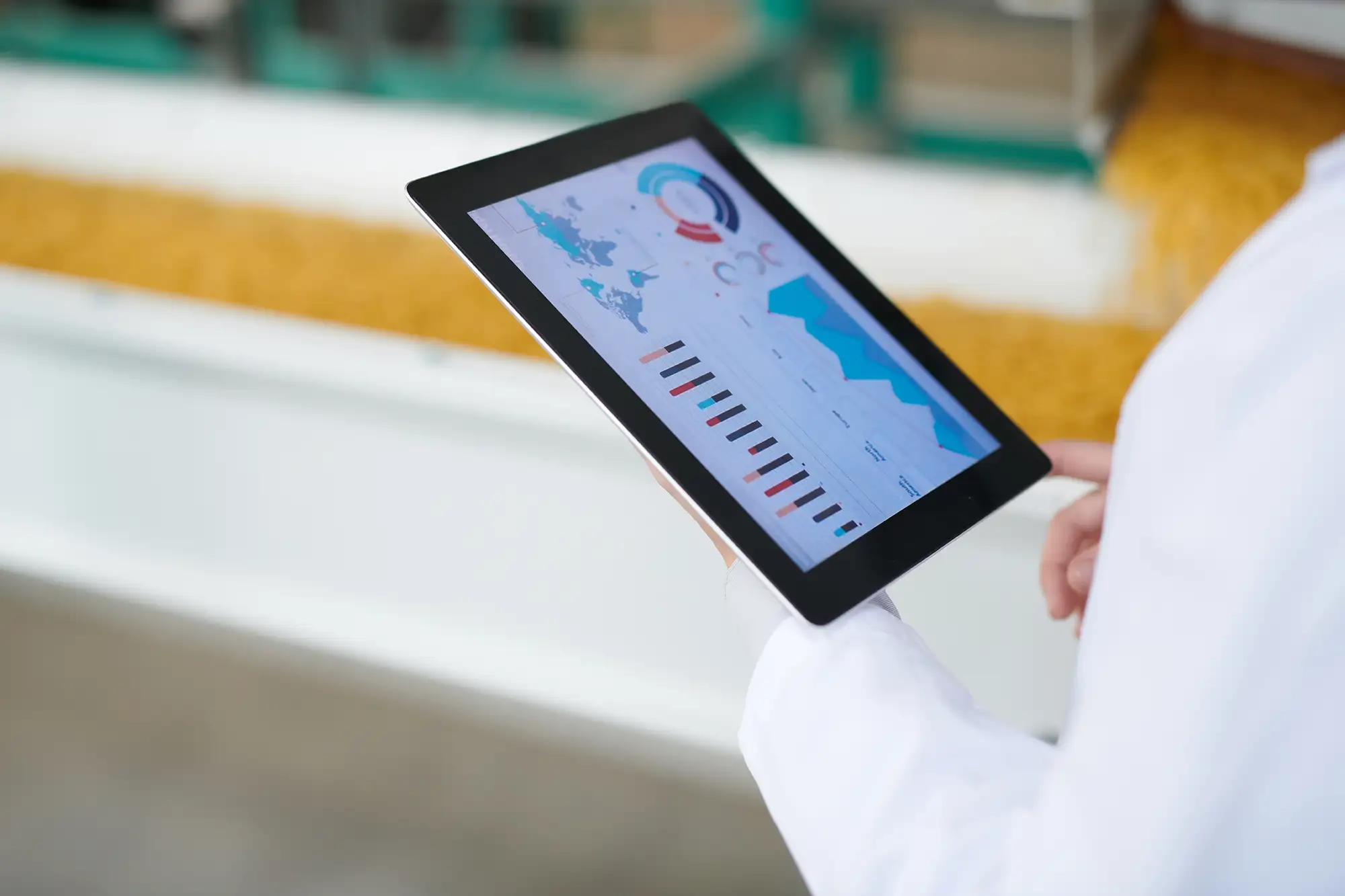Data Relationship Management

By Jenny Barnes
Axentia Associate
Over the last few years, data has played an increasingly significant role for businesses in improving internal efficiency, reducing costs, and optimising the customer experience. Introducing new technologies or upgrading legacy systems as part of a digital transformation may seem like the solution to many organisational issues. However, unless the technology is used effectively to manage data, potential can be missed, and opportunities squandered. It could be that a lack of organisational experience and expertise may be preventing an organisation getting the most out of their technology. By engaging and empowering people to adopt the available data and technology and make it work for them, organisations can move the dial and gain new insights that can be turned into actionable measures.
The process starts with understanding and identifying what data is available to an organisation, and what data they want. While the opportunities that effective data management create are compelling, the pitfalls to consider are substantial. Common data challenges that are found across organisations include issues with data quality, storage, issues with validating data, lack of data science professionals, and challenges with accumulating data from different sources. How can businesses navigate these data challenges? This article will focus on Data Relationship Management. What is Data Relationship Management, and what benefits can organisations enjoy if they embrace the principles of this approach? I will also outline six key rules for effective data management, guidelines that will enable organisations to maintain quality data and make the most of the insights that data can reveal.

Data Relationship Management: Bringing People and Technology Together
Data Relationship Management is a holistic approach that puts people at the heart of the business system, operating in a digital world. As digital and tech adopters, Data Relationship Managers recognise the benefits of modern technology and how it impacts human nature and business operations. The currency of today’s economy is data. Information about customers, suppliers, sales, and competitors provide invaluable insight and help drive better business decision-making. Data is increasingly seen as an organisation’s most valued asset.
Data Relationship Management enables people to optimise their tech and use their data to improve internal and external communications, deepen their relationship with their customers, and iterate improvements in their business operations. It enables the identification of training needs and helps to detect and address skills shortages.
The methods used to manage an organisation’s data are critical. Data must be readily available, high quality, and relevant. Poor data management means that organisations miss out on data-driven opportunities, and waste resources. McKinsey highlighted a recent Global Data Transformation Survey that showed that, because of poor data quality and availability, an average of 30 percent of enterprise time was being spent on non-value added tasks. The consequences of poor Data Relationship Management can be extremely costly and wasteful. Organisations should take steps to ensure they avoid these negative outcomes while benefitting from the advantages of effective Data Relationship Management. I will explore these benefits below and will outline the key rules organisations should follow when managing data.

Some Insights: Data Relationship Management and the Key Rules for Managing Data
Advances in technology have been rapid and disruptive. Data Relationship Management takes the pain out of the change process by helping the existing team evolve their ways of working. Data Relationship Management does not side-line the existing team; we help them modernise their ways of working. Technology is often under-utilised and has a track record of technical debt. While businesses operate as usual, people often don’t realise the benefits of adopting new advances or cannot find the time to do it. Data Relationship Management creates the knowledge sharing and learning environment for continuous business improvement to thrive. We deliver the upskilling training events that are matched to business needs so that adoption is relevant and timely. Developing technology and implementing change can be very disruptive and stressful. Increasing data literacy through training and mentorship accelerates the tech adoption process and reduces stress. With training and analysis, effective data management can assist people’s professional development while building skills that the business needs.
From delivering data transparency and greater accountability, to improving team effectiveness, effective data management adds business value. The benefits of effective data management enable organisations to design sustainable, enjoyable, and productive ways of working with digital advances. It enables organisations to improve visibility and understanding of their operations and customers. It enables organisations to build scalable business processes that are not over-engineered and enables them to engage and empower people to adopt their technology and make it work for them. Data Relationship Management empowers organisations to build data literate business teams and optimise their technical suite.
The Key Rules for Managing Data
- Start with a solid foundation:
Good data relationships begin with quality data and business appreciation of the business processes. Make sure that the data you collect is accurate, relevant, and up to date.
- Communicate effectively:
Like any other relationship, communication is key. Make sure that you understand what your data is telling you and that you can effectively communicate your findings to others.
- Be transparent:
Honesty is important in any relationship, and this is no different when it comes to data. Be transparent about where your data comes from, how it was collected, and any limitations or biases it may have.
- Respect privacy:
Just as you wouldn’t share personal information about a friend without their consent, it’s important to respect the privacy of your data. Make sure that you are following appropriate data protection and privacy regulations.
- Stay organised:
Keeping your data organised and easily accessible will help you maintain a healthy relationship with it. Make sure that you have a system in place for storing and retrieving data and that you are keeping track of any changes or updates.
- Keep learning:
As with any relationship, it’s important to keep learning and growing. Stay up to date with the latest data trends and technologies and be open to new ways of thinking about and working with your data.
Data Relationship Management enables organisations to utilise data to communicate more effectively, stay organised, and keep learning and developing. Effective data management ensures data quality that informs better decision-making and supports more productive and effective operations.

Conclusion: Data Relationship Management - Utilising the Power of Data and Technology
In recent years, more organisations are utilising the power of data to improve operational efficiency, learn more about their customers, and drive greater productivity. Organisations considering embracing this approach should understand the complex challenges that come with attempting to implement and iterate improvements without expert support. Existing teams need to be motivated to deliver a step change, and they need to be supported to do this.
Axentia can help. We are data experts who know how to deliver relevant and manageable upskilling at the point of need. We know how to build data literacy in the business operations.
Axentia – Lead, Transform, Innovate, Develop
At Axentia, we have a wealth of experience working in industry-leading firms that have been at the forefront of data-driven decision making and tech adoption. We have worked with businesses that have cared for people and have invested in people.
Our approach is focused on connecting natural work teams and support and improve the dialogue by introducing and advancing quality data, to create greater transparency and build visibility and business intelligence across the organisation.
Are you interested in exploring the possibilities that Data Relationship Management can create for your organisation?




